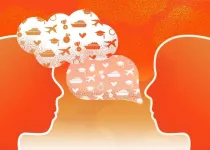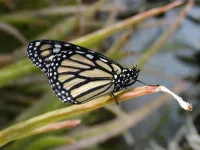Why we're so bad at daydreaming, and how to fix it
'What we feel is a function of what we think; thinking for pleasure can be a powerful tool to shape our emotions'
2021-03-04
(Press-News.org) Did you daydream as a kid, maybe even get in trouble for it? If you find it harder to be pleasantly lost in your thoughts these days, you're not alone.
"This is part of our cognitive toolkit that's underdeveloped, and it's kind of sad," said Erin Westgate, Ph.D., a University of Florida psychology professor.
The ability to think for pleasure is important, and you can get better at it, Westgate says. The first step is recognizing that while it might look easy, daydreaming is surprisingly demanding.
"You have to be the actor, director, screenwriter and audience of a mental performance," she said. "Even though it looks like you're doing nothing, it's cognitively taxing."
Another obstacle revealed by Westgate's research: We don't intuitively understand how to think enjoyable thoughts.
"We're fairly clueless," she said. "We don't seem to know what to think about to have a positive experience."
Westgate wants to help people recapture that daydream state, which may boost wellness and even pain tolerance. In a study published today in the journal Emotion, Westgate and colleagues Timothy Wilson, Nicholas Buttrick and Rémy Furrer of the University of Virginia and Daniel Gilbert of Harvard University instructed participants to think meaningful thoughts. Westgate anticipated that this would guide the thinkers into a rewarding experience, but they actually found it less enjoyable than their unguided thoughts.
"I was so confused," she said. Then she took a look at the topics the participants reported thinking about.
"It was heavy stuff. It didn't seem to occur to them that they could use the time to enjoy their own thoughts."
When we're nudged to think for fun instead of meaning, we tend to default to superficial pleasures like eating ice cream, which don't scratch the same itch as thoughts that are pleasant but also meaningful. But when Westgate provided participants with a list of examples that were both pleasant and meaningful, they enjoyed thinking 50% more than when they were instructed to think about whatever they wanted. That's knowledge you can harness in your everyday life by prompting yourself with topics you'd find rewarding to daydream about, like a pleasant memory, future accomplishment, or an event you're looking forward to, she says.
Daydreaming can be an antidote to boredom, which Westgate's work has shown can induce people to bully, troll and show sadistic behavior. In one experiment, participants opted to kill bugs with a coffee grinder to alleviate their ennui. (The bugs weren't actually hurt, but the participants didn't know that.) In another study, 67% of men and 25% of women preferred to give themselves an electric shock than be alone with their thoughts. Sure, our devices provide an endless stream of distraction, but in certain situations, electronic entertainment is unavailable or unsafe. ("If you're at a stoplight, I'd much rather you reflect on a nice picnic you once had than reach for your phone," Westgate said.)
Aside from its boredom-fighting abilities, thinking for pleasure can be its own reward. "It's something that sets us apart. It defines our humanity. It allows us to imagine new realities," Westgate said. "But that kind of thinking requires practice."
Here's how to master it.
Trust that it's possible to have a good experience if you prime your brain with topics you'll find pleasant. "This is something all of us can do once you have the concept. We give 4- and 5-year-olds these instructions, and it makes sense to them."
That said, "This is hard for everybody. There's no good evidence that some types of people are simply better thinkers. I'm the world's worst person at this: I would definitely rather have the electric shock," Westgate said. "But knowing why it can be hard and what makes it easier really makes a difference. The encouraging part is we can all get better."
Don't confuse planning things with thinking for pleasure. "People say they enjoy planning, but when we test it, they do not."
Choose the right time to try. Research shows we're most likely to daydream when our minds are minimally occupied with something else, like showering or brushing our teeth. "The next time you're walking, instead of pulling out your phone, try it," Westgate says.
As you build your ability to daydream, you'll have a source of enjoyable thoughts at your disposal during stressful times, Westgate says.
"What we feel is a function of what we think. Thinking for pleasure can be a powerful tool to shape our emotions."
INFORMATION:
[Attachments] See images for this press release:

ELSE PRESS RELEASES FROM THIS DATE:
2021-03-04
ITHACA, N.Y. - Close friends are important drivers of adolescent behavior, including college attendance, according to Steven Alvarado, assistant professor of sociology in the College of Arts and Sciences.
In new research published March 4 in American Educational Research Journal, Alvarado reports that having college-bound friends increases the likelihood that a student will enroll in college. However, the effect of having college-bound friends is diminished for Black and Latino students compared with white and Asian students, especially for males and especially for selective and highly selective colleges, due to structural ...
2021-03-04
Ever get stuck trying to solve a puzzle?
You look for a pattern, or a rule, and you just can't spot it. So you back up and start over.
That's your brain recognizing that your current strategy isn't working, and that you need a new way to solve the problem, according to new research from the University of Washington. With the help of about 200 puzzle-takers, a computer model and functional MRI (fMRI) images, researchers have learned more about the processes of reasoning and decision-making, pinpointing the brain pathway that springs into action when problem-solving ...
2021-03-04
A newly discovered planet could be our best chance yet of studying rocky planet atmospheres outside the solar system, a new international study involving UNSW Sydney shows.
The planet, called Gliese 486b (pronounced Glee-seh), is a 'super-Earth': that is, a rocky planet bigger than Earth but smaller than ice giants like Neptune and Uranus. It orbits a red dwarf star around 26 light-years away, making it a close neighbour - galactically speaking.
With a piping-hot surface temperature of 430 degrees Celsius, Gliese 486b is too hot to support ...
2021-03-04
COLUMBUS, Ohio - For Black girls in the juvenile justice system, attention from a caregiver might amount to too much of a bad thing, a recent study suggests.
Though parental attentiveness would generally be considered beneficial to troubled youths, the finding hints at the possibility that a history of trauma in a household's adults may filter down to younger generations, researchers say.
The study, examining how family and peer social support influenced post-traumatic stress disorder (PTSD) symptoms in Black girls who were in detention, found that lower self-esteem, less optimism about the future and higher negative behaviors by peers were associated with greater PTSD symptoms in these girls. But one more factor also correlated with those symptoms: a higher level of caregiver support.
"This ...
2021-03-04
ARLINGTON HEIGHTS, IL (March 4, 2021) - Many new mothers with infants want very much to breastfeed as it is the gold standard for early nutrition. What to do when you find out your young child has a food allergy, and you are breastfeeding? A new study in Annals of Allergy, Asthma and Immunology, the scientific journal of the American College of Allergy, Asthma and Immunology (ACAAI), found that more than 28% of the women were given no guidance on whether they could eat the same food their breastfeeding child was allergic to.
"We found that guidance from healthcare practitioners for breastfeeding mothers in this situation ...
2021-03-04
AMES, Iowa - Wind turbine blades spinning through cold, wet conditions can collect ice nearly a foot thick on the yard-wide tips of their blades.
That disrupts blade aerodynamics. That disrupts the balance of the entire turbine. And that can disrupt energy production by up to 80 percent, according to a recently published field study led by Hui Hu, Iowa State University's Martin C. Jischke Professor in Aerospace Engineering and director of the university's Aircraft Icing Physics and Anti-/De-icing Technology Laboratory.
Hu has been doing laboratory studies of turbine-blade icing for about 10 years, including performing experiments ...
2021-03-04
HOUSTON - (March 4, 2021) - Federal and state governments auction leases to oil and gas companies to extract natural resources from public land. A revamp of the auction system -- utilizing a new model developed by a Rice University economist -- could lead to more competitive bids and, ultimately, more money for governments.
Yunmi Kong, an assistant professor of economics at Rice and the study's author, discussed her model in "Sequential Auctions with Synergy and Affiliation Across Auctions." The article appeared in the January 2021 edition of the Journal of Political Economy.
"Much of the oil- and gas-producing ...
2021-03-04
Scientists from Skoltech and MSU have investigated antibiotic nybomycin that could prove effective against bacteria resistant to other antibiotics. Their research was published in the journal Antimicrobial Agents and Chemotherapy.
All bacterial cells contain topoisomerases, an important group of enzymes that help deal with spatial difficulties stemming from bacterial cell division associated with circular DNA replication. Topoisomerases can be of two types, I and II, depending on breaks they produce in DNA (one strand or double strand). Type II often acts as a target for antibiotics, including fluoroquinolones (FQ), a common group of antibiotics that comprises levofloxacin, ciprofloxacin, and others. Unfortunately, bacteria easily acquire resistance to ...
2021-03-04
Managing single risk factors like blood pressure rather than looking at overall risk may be wasting scarce resources in countries where cardiovascular disease (CVD) is on the rise, according to a new study.
Researchers looked at country-specific levels of cardiovascular risk, associations with socio-demographic factors and whether WHO guidelines on the use of blood pressure medication were being followed across 45 low-income and middle-income countries (LMICs).
They found a higher risk of CVD in lower educated and non-employed people, an overuse of medicines in people at lower levels of CVD risk and an underuse of medicines in people at higher risk across ...
2021-03-04
Western butterfly populations are declining at an estimated rate of 1.6% per year, according to a new report to be published this week in Science. The report looks at more than 450 butterfly species, including the western monarch, whose latest population count revealed a 99.9% decline since the 1980s.
"The monarch population that winters along the West Coast plummeted from several hundred thousand just a few years ago to fewer than 2,000 this past year," said Katy Prudic, an assistant professor of citizen and data science in the University of Arizona School of Natural Resources and the Environment and a co-author of the report. "Essentially, the western monarch is on the brink of extinction, but what's most unsettling is they are situated in the middle of the pack, so to speak, ...
LAST 30 PRESS RELEASES:
[Press-News.org] Why we're so bad at daydreaming, and how to fix it
'What we feel is a function of what we think; thinking for pleasure can be a powerful tool to shape our emotions'




